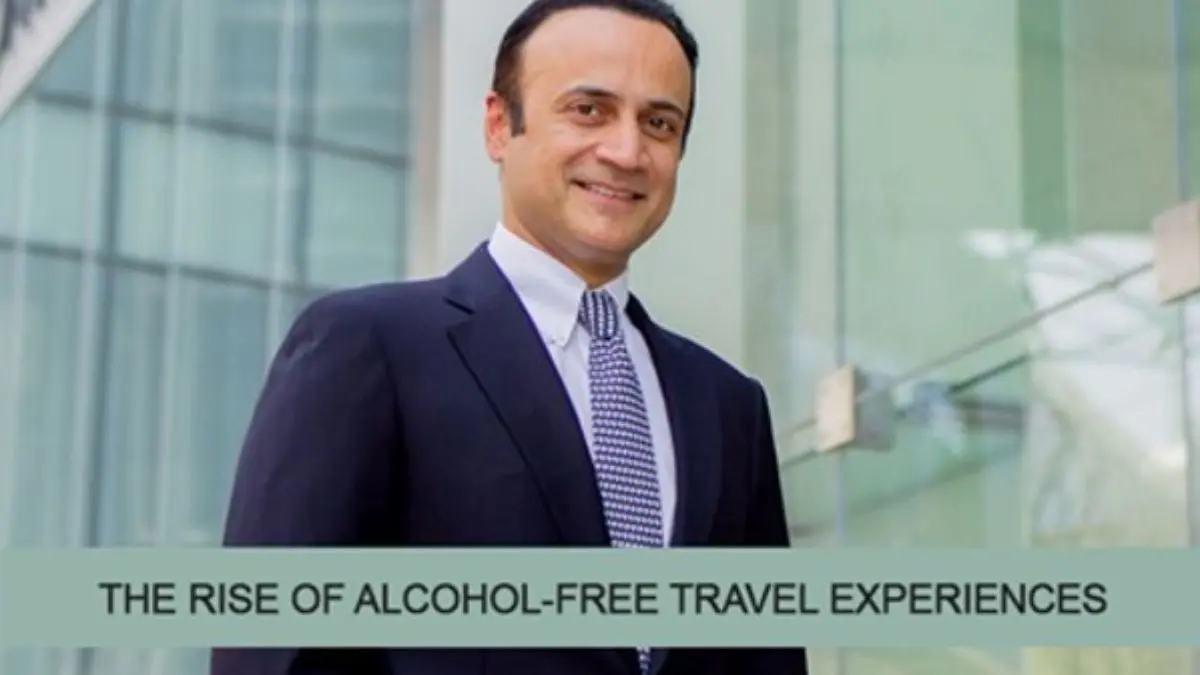Updated 17 June 2025 at 16:06 IST
Hospitality Veteran Sanjeev Nanda on The Rise of Alcohol-Free Travel Experiences
As health-conscious travel gains popularity, hotels are reimagining luxury beyond alcohol. Sanjeev Nanda explores how hospitality brands are adapting to this shift with wellness-driven, inclusive guest experiences.
- Initiatives News
- 4 min read

There has been an increasing number of travellers in recent times who prefer sober and fit lifestyles, questioning their connection with alcohol, even when planning their vacations. This impacts the hospitality scene as hotels and resorts need to reevaluate their offerings, keeping in mind the new health-savvy and mindful travellers. Sanjeev Nanda, a hospitality expert, provided insights into these changing guest expectations and demands, as well as how the industry can cater to this evolution while thriving.
Why Alcohol-Free Travel is Rising
Various shifts in the perception of people including health concerns, cultural significance or generational factors often drive them towards alcohol-free trips. Globally, there have also been several movements, such as ‘Dry January’ or ‘Sober October,’ which are the result of these transforming values. Millennials or the up-and-about Gen Z travellers, started prioritizing peace and mindfulness, indicating a change in their travelling ways. As per Nielsen IQ report in 2023, there has been a 33% increase in the sale of non-alcoholic beverages compared to the past year. IWSR report (2024) highlights that in the past few months, alcohol consumption has decreased among drinkers across 15 markets by 48%. It has notably led 68% of consumers to turn towards no-alcohol items, reporting a significant reduction in alcohol intake. In addition to that, health advisories such as the U.S. Surgeon General’s caution regarding the connection between alcohol and cancer have managed to expand the awareness surrounding health.
Sanjeev Nanda notes, “Travellers these days seek a balance between their choices and values. Hospitality has taken a turn, focusing on wellness much more than providing only luxury.”
Advertisement
How the Hospitality Industry is Responding
Hospitality is preparing itself for new, inclusive and forward-looking experiences with more options for alcohol-free travel. Different ranges of properties provide offerings of curated beverages with a multitude of mocktail options and dinners for their guests. There are wellness retreats that offer sober options emphasizing nature, yoga, mind and self. Even urban hotels have introduced zero-proof bars that contest the traditional cocktail ones.
Advertisement
Nanda shares, “Personalization is the key in all these. Hotel properties exhibit their concern for guests by realizing their varied needs. It is regarding giving choices to the consumers, not just limiting to alcohol.”
Nowadays even social events indulge in creating safe and adapting spaces for their guests involving sober and non-sober guests alike. Alcohol is given as a voluntary choice rather than as being served as the main thing.
Sanjeev Nanda says, “A shift is seen from gratification to intent. Guests should feel that their intentions, values, and interests are respected, and that becomes a major point in forming a deeper trust and connection with the brand. It goes beyond just serving their niche tastes, aiming towards depth and inclusiveness.”
The Business Opportunity Behind the Trend
Many dynamic hospitality brands have taken the opportunity to rediscover and revitalise their aspects to attract a broader audience. Professionals, solo travellers and families do look for destinations where they can unwind and rejuvenate without being concerned about alcohol-induced situations. Those hotels that focus on these requirements often establish brand loyalty and attract new visitors while retaining old ones. It also shows them responsible, customer-centric and attractive in a wider sense.
Alcohol-free travelling has become much more than a fleeting trend. It aims at exploration, relaxation and connection beyond the party vibe. The hospitality field can utilize this shift by presenting healthier, better and more intentional options that remain with the consumers even after they leave.
“Hospitality is all about adapting to the changing trends, working on fulfilling the altering demands and being ethical while doing it. Catering to evolving guest lifestyles helps build trust among the clientele, which can lead to repeat visits and positive word-of-mouth. The brands that stay and adapt innovatively to the evolving trends will ultimately remain in this smart business and grow successfully,” concludes Sanjeev Nanda.
Published By : Sagarika Chakraborty
Published On: 17 June 2025 at 16:06 IST
